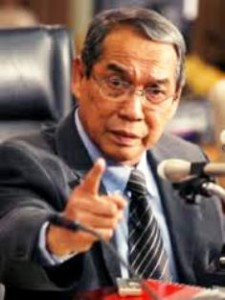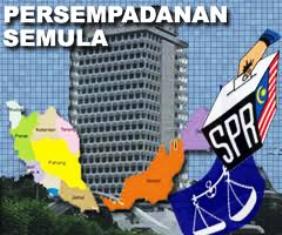BERSIH 2.0 is deeply troubled to read statements made by the former Election Commission chair, Tan Sri Abdul Rashid Abdul Rahman, upon publicly declaring his membership in Pertubuhan Pribumi Perkasa Malaysia (Perkasa).
According to news reports, during his time in the Election Commission as secretary and chair, three re-delineation exercises “ensured Malays remained in power.” (“Ex-Election Commission chief joins Perkasa, says goal is to help Malays retain power”, The Malaysian Insider, 25 November 2013).
He further stated, “We did it in a proper way. Not illegally. The people who lost in the past general elections claimed that we did it wrong. But if we did, how did Barisan Nasional lose to the opposition in Kelantan, Penang and Selangor?”
Tan Sri Abdul Rashid Abdul Rahman’s statement that the EC’s ethnicity-based re-drawing of electoral boundaries was done “in a proper way” and “not illegally” is, at best, disingenuous.
Under the Thirteenth Schedule of the Federal Constitution, one of the principles governing the delineation or delimitation of electoral boundaries was that “the number of electors within each constituency in a State ought to be approximately equal except that, having regard to the greater difficulty of reaching electors in the country districts and the other disadvantages facing rural constituencies, a measure of weightage for area ought to be given to such constituencies.”
How this was supposed to be carried out in practice was that a rural constituency may have fewer voters compared to an urban constituency of a similar or smaller geographic size, on the basis of logistical difficulties of serving rural voters.
BERSIH 2.0 recognises that the provision on rural weightage is widely interpreted as an implicit pro-Malay weightage, but the real picture is more complex.
We would like to point out Tan Sri Abdul Rashid Abdul Rahman’s claims, setting aside their ethically and constitutionally dubious nature, are not borne out by the numbers.
The largest state seats in Selangor and Perak are Malay-majority – for example, the Malay-majority and previously BN-held Seri Serdang is twice the size of Chinese-majority and PR-held Kinrara.
With one assemblyman to serve the 72,769 registered voters of Seri Serdang (and even more non-voting residents), can this be said to have given the Malay voters of that constituency an advantage?
The provision on rural weightage is not even adhered to by the EC, as the rural Parliamentary seat of Baling (93,376 in 2013) has considerably more voters than the urban Parliamentary seat of Alor Setar (69,189 voters in 2013).
Both are Malay-majority seats. It appears, in fact, that political rather than ethnic factors were at play in previous re-delineation exercises.
As BERSIH 2.0 has long suspected, the gerrymandering and malapportionment served the interests of the political party in power.
The EC is bound by principles set down in the Federal Constitution and international standards in conducting its duties, including the Inter-Parliamentary Union’s 1994 Declaration on Criteria for Free and Election.
The measure of the EC’s success is not the victory of any particular political party, but whether their actions can meet these standards.
Tan Sri Abdul Rashid Abdul Rahman’s statements lend credence to BERSIH 2.0’s long-running contention that the Malaysian Election Commission (EC) is not an independent, non-partisan election management body.
That the former EC chair felt he could make these statements openly, with not even the barest recognition of public accountability, speaks volumes about the political culture which the current EC inherited and continues to perpetuate.
BERSIH 2.0 has severe reservations about the ability of the current EC to succeed where its predecessors failed, in exercising its responsibilities in an ethical, non-partisan, and independent manner.
Testimonies during the People’s Tribunal in September 2013 spoke of active political party members serving as EC staff during the 13th General Election (GE13). It was previously reported that the current chair and deputy chair of the EC are UMNO party members.
The EC’s reluctance to clean the electoral rolls despite repeated evidence casting doubt over their integrity has been noted. Further, observations by Pemantau Pilihan Raya Rakyat (PEMANTAU) during GE13 noted that flagrant violations of election-related laws happened with impunity, in addition to the EC’s complete lack of accountability over the issue of the indelible ink.
BERSIH 2.0 strongly urges that the current re-delineation exercise be halted until the electoral rolls are cleaned and new Election Commission members appointed with the participation of civil society.
Tan Sri Abdul Rashid Abdul Rahman’s statements join a long line of disappointing and troubling revelations on the conduct of the EC, but the rot can and should stop here.
Salam BERSIH!







